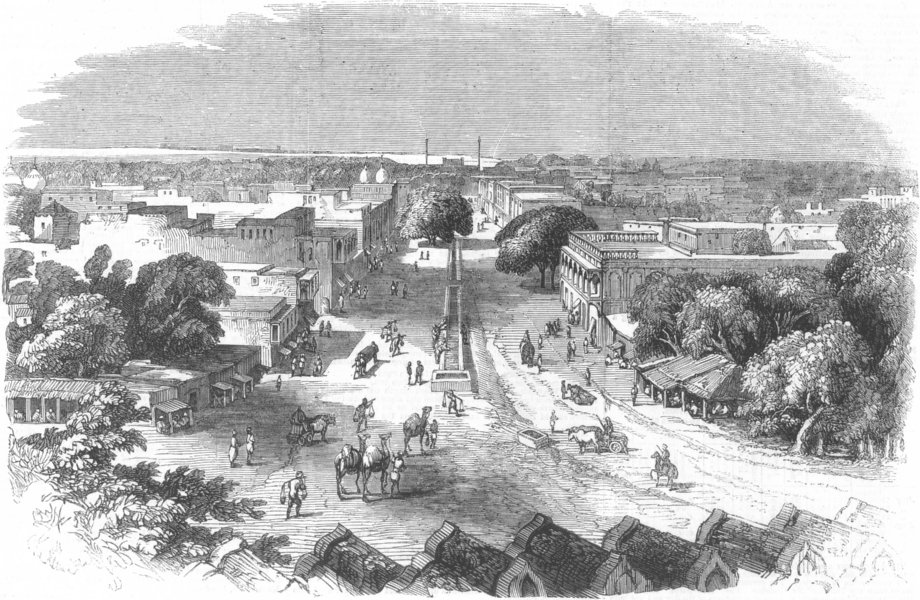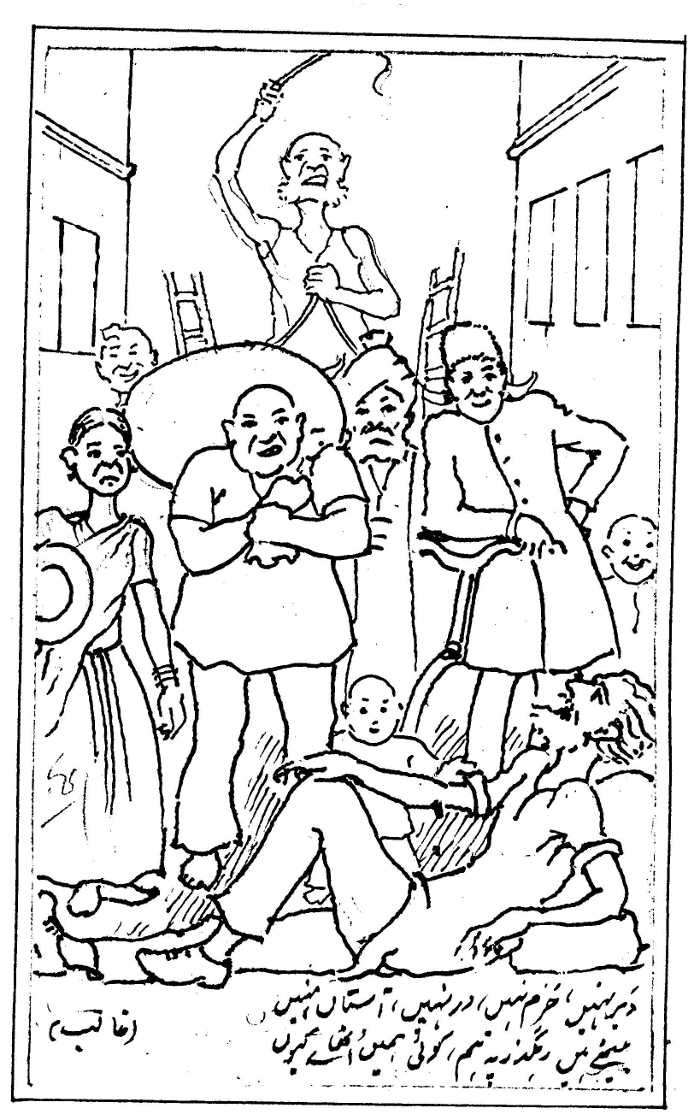FWP:
SETS == LIST; MUSHAIRAH
RELIGIONS: {60,2}
ROAD: {10,12}
PAST PARTICIPLE, OR PERFECT TENSE? In the present verse, ham bai;The hai;N can most obviously be the present perfect tense ('we have sat down'). But it can also be a legitimately and colloquially short form for the past participle ham bai;The hu))e hai;N ('we are in a state of having sat down'). Does this make much difference? Not usually, and not here. But sometimes it actually does. And anyway, a smart grammar fan will always want to know this kind of thing not only for future reference, but also for sheer intellectual satisfaction. The principle is the same for many other verbs, but bai;Thnaa is a particularly good example because we so often mean it in a participial way: we talk about the durational time of being seated-- that is, being 'in a state of having sat down', bai;The hu))e -- much more often than we talk about the moment of actually depositing oneself on the seat of a chair-- bai;Thte hu))e . Some other such instances: {80,2}; {143,6}; {182,2}; {208,6}.
For general discussion of the structural qualities of this ghazal, see {115,1}.
In good mushairah-verse style, the first line is completely useless until (after a suitable delay, under oral performance conditions) we hear the second. But it's very piquant, isn't it? Simply the negations of four places, the first two overtly religious, the second two ambiguous (whose door? whose doorsill?).
Then in the second line, we finally learn what those negations mean: they are places where the lover has not sat down. He's sat down beside the roadway instead. Such a Ghalibian choice! The roadway both is, and isn't, a 'place' in its own right. It's not comfortable or inviting, it's not designed for shelter; but it connects all those places named in the first line, and many more besides. The roadway keeps all the lover's options open-- if he has any. It's a symbol either of choice (perhaps he refuses to settle in any of those places), or of desperation (perhaps he's been kicked out already from all those places).
And of course, the roadway is designed for movement-- what does it mean for him to 'sit down by' it? Is it a sign of future movement (the lover is about to get up and set out); or past movement (the lover has come this far and has halted); or continuing movement (the lover is only taking a brief rest on his journey)? Or, equally possibly, the lover may have sat himself down and decided to camp there till he dies, refusing to move anywhere at all.
Why indeed would the Other (or some ordinary 'other' person) make him get up? Has the Other caused him to be expelled from those four places already, and the lover has now found one to which he can stake a real claim? Has the lover deliberately avoided those four places because he knows they belong to the Other, and thus chosen the public roadway as his own domain? Is the Other a competitor in love (as he usually is), or a vengeful persecutor of some kind-- or some other, ultimate Other (nature unspecified)?
And finally, does the Other in fact threaten to make him get up? The lover's question might be purely rhetorical (here on the roadway, of course he couldn't be made to get up!); or a sign of anxiety or premonition (is he to be persecuted even here?); or a response to a real threat (why is he now being required to move on?).
Consider also {15,11}, another
verse about the ambiguities of sitting in a seemingly humble place.


From a privately printed collection by Kamil Hyderabadi, with thanks to Mansoor Khan
Nazm:
For this verse, sufficient words of praise cannot be found. (123)
== Nazm page 123